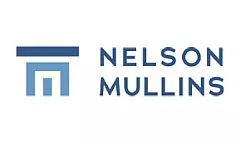- within Consumer Protection topic(s)
- in United States
- with readers working within the Media & Information industries
- within Consumer Protection, Energy and Natural Resources and Antitrust/Competition Law topic(s)
The New York State Legislature recently passed the Fostering Affordability and Integrity through Reasonable Business Practices Act ("FAIR Act"), a sweeping update to New York's consumer fraud statute (GBL § 349)—the first in 45 years. If signed by Governor Kathy Hochul, the FAIR Act will significantly broaden the scope of prohibited business conduct and enforcement authority—with direct implications for a wide range of industries and business practices.
These changes would strengthen the New York Attorney General's consumer protection powers, likely increase related litigation, and align New York's law with those of other states that ban not only deceptive, but also unfair and abusive practices. Key updates to GBL § 349 and the FAIR Act's potential impacts are outlined below.
Summary of Key Changes
- Expanded Scope of Prohibited Conduct:
- The Fair Act adds "unfair" and "abusive" acts to the existing prohibition on "deceptive" practices.
- The Act defines a practice as "unfair" when it "causes or is likely to cause substantial injury which is not reasonably avoidable and is not outweighed by countervailing benefits to consumers or to competition."1
- An practice is "abusive" when it "materially interferes with the ability of a person to understand a term or condition of a product or service" or it "takes unreasonable advantage of" (A) "a lack of understanding on the part of a person of the material risks, costs, or conditions of a product or service"; (B) "the inability of a person to protect such person's interests in selecting or using a product or service"; or (C) "the reasonable reliance by a person on a person engaging in the act or practice to act in the relying person's interests."2
- Under the FAIR Act, however, only the NY AG can enforce the prohibition on "unfair" or "abusive" acts. GBL § 349's private right of action stays limited to actions against "deceptive" practices.
Takeaways for Businesses Operating in New York
- Reassess Consumer-Facing Materials for Clarity and
Prominence:
- The targeted "unfair" and "abusive" acts lack settled legal definitions, making it difficult to predict what conduct or representations may trigger an enforcement action.
- Under the plain language of "abusive," for instance, courts and regulators may disregard disclaimers and product labels that are not prominently displayed or that fail to clearly refute misleading impressions.
- Businesses should ensure that disclosures are written in plain, easy-to-understand language and placed prominently on packaging, labels, or documents.
- Anticipate Additional Class Action Filings and Novel
Legal Theories:
- Although private plaintiffs may not sue under the new "unfair" or "abusive" standards, the FAIR Act's expanded language may still embolden plaintiffs' firms to test the boundaries of what constitutes "deceptive" conduct—especially where facts suggest overlap with unfairness or abusiveness.
- Recent federal decisions have allowed statutory damages on a per-violation basis (as opposed to per plaintiff), multiplying the potential exposure in large class actions—especially those involving consumer goods.3
- Evaluate Privacy Disclosures and Data Security
Practices:
- The FAIR Act's inclusion of "abusive" practices may empower the NY AG to target inadequate or confusing privacy disclosures—especially those that obscure how consumer data is collected, used, or shared.
- Businesses should reassess whether their privacy policies and notices are understandable, prominently displayed, and avoid taking "unreasonable advantage" of consumers' lack of technical understanding.
- Lax data security practices that result in breaches may also invite enforcement if viewed as "unfair" under the new statutory framework—especially where the harm is substantial and not reasonably avoidable.
- Companies collecting sensitive consumer information (e.g., financial, biometric, or health-related data) should ensure robust technical safeguards are in place and regularly tested.
- Monitor NY AG Enforcement Trends:
- The NY AG has hired former attorneys from the federal Consumer
Financial Protection Bureau (CFPB) and signaled a more aggressive
posture towards enforcement, including with respect to:
- AI-based schemes,
- Hard-to-cancel subscriptions; and
- Data breaches. 4
- The NY AG has hired former attorneys from the federal Consumer
Financial Protection Bureau (CFPB) and signaled a more aggressive
posture towards enforcement, including with respect to:
Nelson Mullins will continue to monitor the progress of this legislation and provide broader state AG and consumer protection client alerts and analysis.
Footnotes
1. FAIR Act § 349(a)(1), available at https://legislation.nysenate.gov/pdf/bills/2025/S8416.
2. Id. § 349(a)(2).
3. See Montera v. Premier Nutrition Co., LLC, 111 F. 4th 1018 (9th Cir. 2024).
The content of this article is intended to provide a general guide to the subject matter. Specialist advice should be sought about your specific circumstances.



